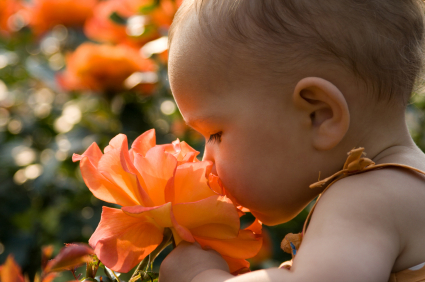“It is the time you have wasted for your rose that makes your rose so important.”
— Antoine de Saint-Exupéry, The Little Prince
In between today’s morning cartoons and Sunday football, our family took a quick sojourn to Loose Park, one of the gems of our beloved Kansas City, and a regular haunt for our tribe.
Within the grounds of the park, is a beautiful rose garden that has been a refuge for my husband and I as far back in the foundations of our relationship as I can remember. We’ve done a lot of talking and just “being” in that rose garden, so much so, that it has now become a favorite spot for my five year old daughter.
So after the obligatory visit to the playground, the little lady and I suggested a visit to the rose garden. Approaching the outskirts of the garden, I expected to find a whole-lotta-nothin’ going on, since it is November and we’ve had a freeze, but I was surprised to find quite a few of the summer’s beauties still busy with their self-expressive unfolding.
We walked the rings of circular paths that encapsulate the garden, taking in what was left of the floral beauty; admiring the colorful, however somewhat antiqued, look of their colors. I was struck by how each rose differed in their response to the cold and the inevitable end of the growing season. Some were drooped over as if exhausted to hold on yet another minute while others were vigilant in maintaining their form, despite the obvious stress of cold.
Without question, we lent time to smell the roses. My daughter approached them all with the aplomb of a scent sommelier. What to me were varying intensities of “rose smell,” were to her nose the scents of “ketchup,” “heaven,” “lemons,” and “honey.” Upon second sniff, I could understand her complex references. What a wonderful refinement to my olfactory experience!
Towards the end of our visit, we began gathering petals. It was purposeless other than seeing how many colors we could collect. Our final menagerie was impressive in its varied hues: whites with a blush of pink, mauve with edges of yellow, reds variegated with scarlet and crimson. All of them individually still stunning to the eye though they were only the remnants of a once splendid rose—now reduced to the organic litter of a garden.
I am struck by how little direction my children need to find wonderment in the world. Just pointing them in a direction without needing to control their experience has often yielded observations in them that are far more interesting to bear witness to than anything I could purposefully impart. It also expands my “knowing” of them as a unique individual—because no two observations are entirely alike.
For me, this speaks to the importance of supporting the direct experience of those whose lives we touch. The art of really being present to someone else rests in our ability to allow them their experience without editing it to fit our perspectives. That is when all of us really feel heard…and it is in the freedom of that environment that we all are most inclined to unfold to our full potential. And who knows, we might just find that our lives are more enriched by that experience, too.


 Mindfully Letting Go of Habits
Mindfully Letting Go of Habits